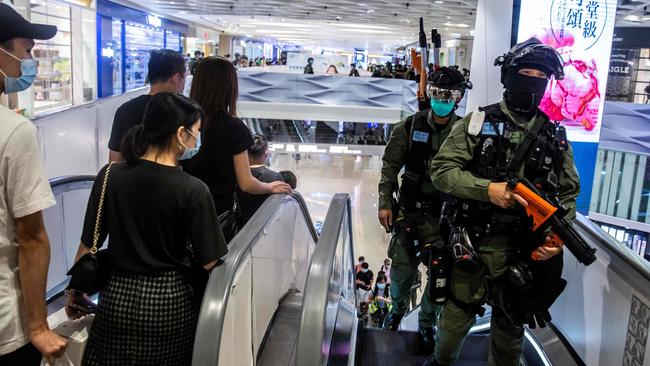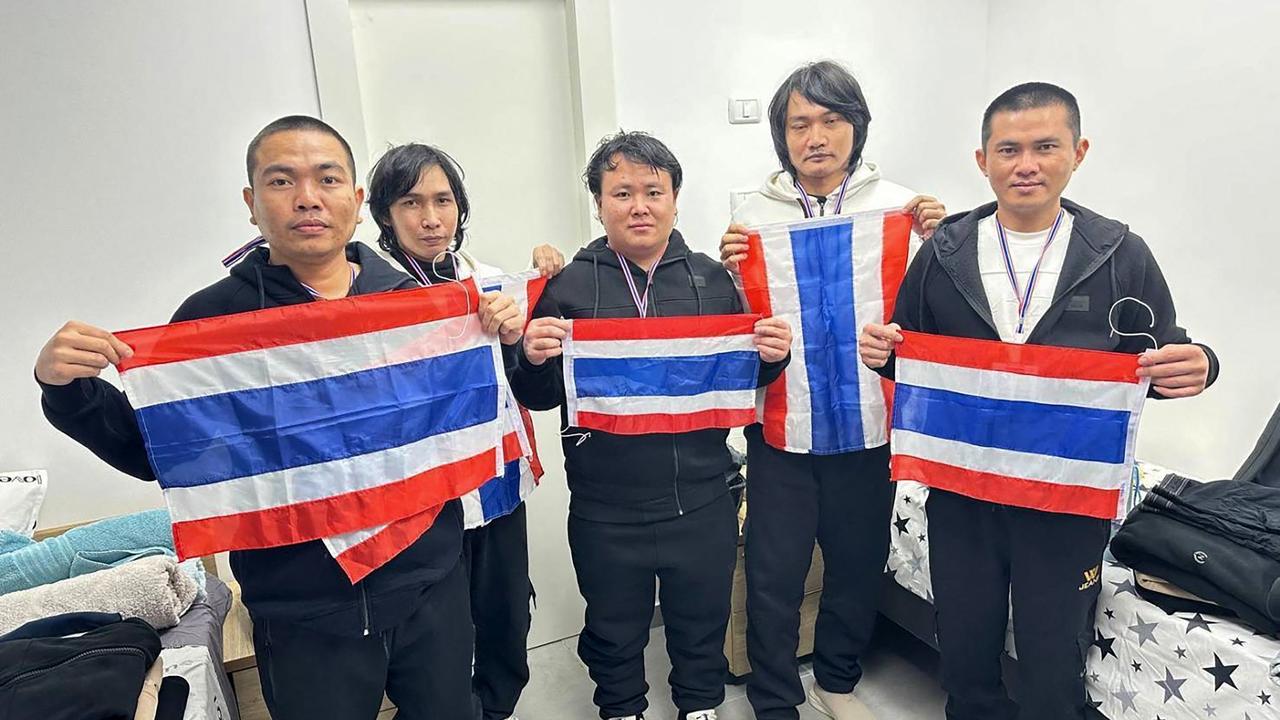UK toughens China stance, shelves Hong Kong extradition treaty
The UK will shelve its extradition treaty with Hong Kong after joining the US in toughening its stance on China.
Britain will shelve its extradition treaty with Hong Kong on Monday night as London seeks to join its allies Australia, the US and Canada in hardening its stance towards China.
Foreign Secretary Dominic Raab will tell the House of Commons that the agreement will be suspended in response to the draconian security law imposed on the former British colony that jeopardises its judicial independence, The Times reports.
Canada and Australia have already scrapped their extradition treaties with Hong Kong and the US is considering a similar move. China has threatened to retaliate and says Britain can expect a “resolute response” to any action.
US Secretary of State Mike Pompeo will fly into London on Monday for talks with Prime Minister Boris Johnson and Mr Raab on Tuesday. However, he will first meet 20 backbench MPs led by former Tory leader Iain Duncan Smith who have been pressing for a hard line on China.
Mr Raab told the BBC’s Andrew Marr show on Sunday that China had engaged in “gross and egregious” human rights abuses against its Muslim Uighur population in the northwestern region of Xinjiang and said he wanted to work with allies to impose sanction on those responsible.
He is looking to call on Australia and other countries to support measures against the abuse, which has included reports of forced sterilisation. He told Marr that this was “reminiscent of something not seen for a long time”.

China’s ambassador to London, Liu Xiaoming, denied claims of “ethnic cleansing” of Uighurs.
He said “they enjoy peaceful, harmonious coexistence with other ethnic groups of people”. He said reports of declining population were not correct and that the number of Uighurs in Xinjiang had doubled in the past four decades.
“There is no so-called pervasive, massive forced sterilisation among Uighur people in China,” Mr Liu said. “Government policy is strongly opposed to this kind of practice.”
Last month, German scholar Adrian Zenz said Xinjiang authorities were engaging in the mass sterilisation of women with three or more children and were threatening women who refused abortions with internment in concentration camps.
Mr Liu said on Sunday there were no Uighur concentration camps. Human Rights groups say up to a million people are held in the re-education camps, which Beijing has compared to boarding schools.

Marr showed Mr Liu footage from Xinjiang taken last year appearing to show prisoners blindfolded, heads shaven, shackled and being led onto trains.
But the ambassador said: “I do not know where you get this videotape … sometimes you have a transfer of prisoners, in any country. There is no such concentration camps in Xinjiang. There’s a lot of fake accusations against China.”
Mr Raab said the international community had to be careful before making claims of genocide because of legal question marks.
“Whatever the legal label, it is clear that gross, egregious human rights abuses are going on,” he added.
He said Britain had raised the “deeply, deeply troubling issues” with the UN in Geneva.
Mr Raab said it was right to call out China on human rights abuses and said he would work with other international partners to take action “in the right way”.
Mr Raab told Marr that the government had reviewed its extradition arrangements and “a range of other measures that we might wish to take”.
The Times reported that one option was for ministers to impose sanctions on Chinese organisations and individuals accused of human rights abuses. These could include travel bans and the freezing of assets, with sanctions already imposed this month on Russian, Burmese, North Korean and Saudi citizens.
Britain has reversed its to decision to allow China’s Huawei to build a large part of its 5G network and banned the installation of new Huawei kit from 2021.






